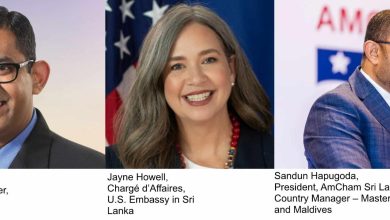GROWING ‘VISA WAR’ BETWEEN EU AND US
Growing ‘Visa War’ between EU and US will have major impact on global mobility
Immediate Release: London, 3 March 2017
The global residence and citizenship advisory firm, Henley & Partners, says the vote by the European Parliament to end visa-free travel for Americans to EU countries will have a major impact on global mobility, especially the travel freedom currently enjoyed by US and possibly even EU citizens, if US President Donald Trump retaliates in kind. The firm is due to publish its annual Visa Restrictions Index within the next 10 days, but the EU backlash against President Trump’s failure to meet the deadline to lift visa restrictions on five EU countries – namely Bulgaria, Croatia, Cyprus, Poland, and Romania – may see America fall out of the top ten on the prestigious travel freedom ranking for the first time since it was first published in 2003.
The Henley & Partners Visa Restrictions Index is produced in partnership with the International Air Transport Association (IATA), which maintains the world’s largest and most authoritative database of travel information. For the past few years, Germany has retained its position at the top of the ranking with visa-free access to 176 countries in total. Sweden has stayed in second place with 175 countries, and the US joined Denmark, Finland, Italy and Spain in third place, with their nationals enjoying access to 174 countries without a visa.
Christopher Willis, Managing Partner of Henley & Partners Caribbean, says the size and make-up of the ‘Top 10’ countries on the Visa Restrictions Index has remained largely the same for the past decade but it looks likely that the rapidly changing geopolitical climate will have a dramatic effect on the rankings over the next 12 months. “We have witnessed major world events that are impacting on global mobility – including Brexit and the election of President Trump. This has led to steps towards restricting movement and creating barriers to entry. This recent trend of suspending visa waiver programs and curbing the travel freedoms of certain nationals is already apparent in the shift in rankings on this year’s Visa Restrictions Index,” explains Willis.
Following yesterday’s vote, the EU Commission now has two months to reintroduce visas for Americans wishing to travel to Europe, after MEPs agreed the EU is now “legally obliged” to suspend the Visa Waiver Programme (VWP) with the US for a year after the US administration failed to meet a deadline to respond to their visa reciprocity arrangement.
“There is still huge disparity in the levels of travel freedom between countries, despite the world becoming seemingly more mobile and interdependent. Generally, visa requirements are a reflection of a country’s relationship with others, and take into account diplomatic relationships between countries, reciprocal visa arrangements, security risks, and the dangers of visa and immigration regulation violations. The recent unsettling world climate has prompted an increased emphasis on physical safety and security, motivating high net worth individuals to explore investment migration programs as a means of reducing risk and opening up new opportunities in a rapidly changing and uncertain world,” explains Willis.
In contrast to 12 years ago, when the Henley & Partners Visa Restrictions Index was first published, there are now many more residence- and citizenship-by-investment programs available for those who wish to increase their travel freedom. More and more governments are embracing these programs as a means of stimulating economic development and growth, and there is an increasing number of wealthy and talented individuals looking to diversify their citizenship portfolios to give themselves and their families greater international opportunity, stability, freedom and security.
Wealthy Americans who want to be protected from disputes such as the so-called ‘visa war’, now have the world to choose from when it comes to acquiring an alternative residence or citizenship. Caribbean citizenship-by-investment programs, such as the recently revitalized Grenada Citizenship-by-Investment Program, can protect your travel freedom to the world’s largest markets including China, the UK, and Europe’s Schengen area.
“For individuals who hold passports of countries with fewer visa waiver agreements, a second or even third citizenship can open up travel opportunities to countries previously restricted by time-consuming visa application requirements and processes. The latest Henley & Partners Visa Restrictions Index to be published in ten days is relevant to both individuals interested in improving their mobility and the quality of their nationality, as well as governments focused on improving the local, regional and global opportunities inherent in their passports,” concludes Willis.
-Ends-





